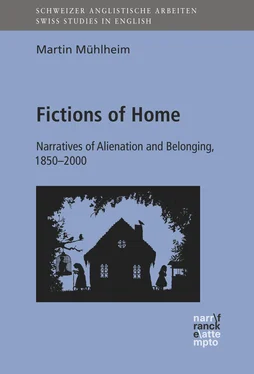[Poetrypoetry] strips the veil of familiarityfamiliarity from the world, and lays bare the naked and sleeping beauty which is the spirit of its forms.
[… I]t purges from our inward sight the film of familiarityfamiliarity which obscures from us the wonder of our being. It compels us to feel that which we perceive, and to imagine that which we know. It creates anew the universe after it has been annihilated in our minds by the recurrence of impressions blunted by reiteration. (698)
For ShelleyShelley, Percy Bysshe, as for the Russian FormalistsRussian Formalism, it is poetry or art that re-infuses life and vitality into a universe annihilated by repetitionrepetition, tearing the veil of familiarityfamiliarity from our eyes and thus allowing us to experience – and know – the world anew and, therefore, more profoundly.
In fact, the idea of familiarityfamiliarity as a threat to real understanding goes back even further, to Georg Wilhelm Friedrich HegelHegel, Georg Wilhelm Friedrich, who claims, in the Preface to his Phenomenology of Spirit , that “the familiarfamiliarity, just because it is familiarfamiliarity, is not cognitively understood” (18; § 31).46 Indeed, HegelHegel, Georg Wilhelm Friedrich even posits a need for the style ofstyle truly philosophical writing to be so unfamiliar and difficult that such texts might have to be read repeatedly before they can be understood (39; § 63–65). Importantly, whereas ShelleyShelley, Percy Bysshe and the Russian FormalistsRussian Formalism tend to see in defamiliarizdefamiliarizationation the essence of ‘poetry’ or ‘literariness’ – i.e. a primarily aestheticaesthetic technique – for HegelHegel, Georg Wilhelm Friedrich it is a necessary step in the acquisition of true knowledgeknowledge as such, and thus not strictly speaking ‘merely’ an artistic, but instead a philosophical enterprise. In a sense, it is this idea that Oscar WildeWilde, Oscar picks up on in his dialogue “The Critic as Artist,” where one of the interlocutors suggests:
An age that has no criticism is either an age in which art is immobile, hieratic, and confined to the reproductionreproduction of formalform and content types, or an age that possesses no art at all. [… T]here has never been a creative age that has not been critical also. For it is the critical faculty that invents fresh forms. The tendency of creation is to repeat itself. (254)
For WildeWilde, Oscar’s speaker as much as for HegelHegel, Georg Wilhelm Friedrich, the new, unexpected, and unfamiliar is thus not the effect of the creative impulse, but instead the product of the “critical faculty.”
In E.T. there is at least one scene that illustrates perfectly how it is possible implicitly to critique a particular state of affairs by confronting the audience with the familiarfamiliarity as seen through unfamiliar eyes. In the scene in question, Elliott tries to explain the contents of his room to E. T., but for the audience it is clear that the alien cannot but find Elliott’s explanations confusing:
Coke, see? We drink it. It’s, uh, it’s a drink. You know… food. [Showing E.T. two action figures.] These are toys. These are little men. This is Greedo, and then this is Hammerhead. […] And look, they can even have wars. Look at this. [Taking two plastic fishes, a smaller one and a shark.] And look, fish. The fish eat the fish food. And the shark eats the fish. But nobody eats a shark. See, this is Pez. Candy. See, you eat it. You put the candy in here, and then when you lift up the head, the candy comes out, and you can eat it! You want some? [Pointing to his peanut-shaped piggybank.] Oh, this is a peanut. You eat it. But you can’t eat this one, ’cause this is fake. This is money. See? We put the money in the peanut. You see? Bank. You see? [Showing E.T. a tiny toy carcar.] And then this is a car. This is what we get around in. [Offering the toy car to E.T.] You see? (MathisonMathison, Melissa 68–69)
What on earth, for instance, is E.T. to make of the idea that we “put the money in the peanut”? And how is he to understand Elliott’s explanation that “this is a carcar. This is what we get around in” – given the fact that Elliott is showing him a toy car, which is far too small for any human to get around in? This notably comiccomedy scene in E.T. is, in short, also an exact application of one technique of defamiliarizdefamiliarizationation that Shklovsy identifies in Tolstoy: making the familiarfamiliarity seem strange by prompting the audience to see things from an unfamiliar point of view, for example a horse’s (21) – or, as in our case, an extra-terrestrial’s. Suddenly we see the strangenessstrangeness at the heart of a boy’s room: it harbors fantasies of war – the fighting action figures – and generally reflects a world where the small fish are eaten by the sharks, and which, already, revolves around money and, of course, cars: that ultimate symbolsymbol of individual freedomfreedom through consumptionconsumerism and consumption. Terry EagletonEagleton, Terry thus rightly insists that we “can engage with the wider world simply by recording what goes on at home” ( The English Novel 322) – provided that we manage to see the familiarfamiliarity as if we were perceiving it for the first time.
At the same time, even if we accept that defamiliarizdefamiliarizationation is a necessary technique for any critical enterprise – very much including the present one – we should not therefore see it as the binarybinary oppositions opposite of a desiredesire to belong. Rather, as HegelHegel, Georg Wilhelm Friedrich suggests, the ultimate “aim of knowledgeknowledge is to divest the objective world that stands opposed to us of its strangenessstrangeness, and, as the phrase is, to find ourselves at home in it” – and this, for HegelHegel, Georg Wilhelm Friedrich, involves a dialecticaldialectic return to belonging as a complement to previous acts of selfself-alienationalienation ( Logic 289; § 194).47 It is, presumably, the same idea that the German poet NovalisNovalis wanted to express in a frequently quoted aphorism: “Philosophy is actually homesicknesshomesickness – the urge to be everywhere at home ” ( Philosophical Writings 135; original emphasis).48 To relinquish the quest for a sense of home altogether would thus defeat the very purpose of defamiliarizdefamiliarizationation. Moreover, as Terry EagletonEagleton, Terry observes, to indulge in the denigration of home, the familiarfamiliarity, and the everydayeveryday is tantamount to accepting a peculiarly modernistmodernism biasbias against the common life: “In the transition from realismrealism to modernismmodernism, a fascination with the texture of everyday living gives way to a mandarin scepticism of it. Common experience is now the locus of illusion, not of truth” ( Trouble with Strangers 277).49 To assume, that is to say, that everything about the places we call home is false and coercive is just as problematic as blindly to accept everything that is familiarfamiliarity. When studying home, we may therefore want to bear in mind the words of Friedrich Dürrenmatt’s Inspector Bärlach when he talks about the idea of loving one’s country: “One should not be ashamedshame of one’s lovelove, […] only it has to be stern and critical, otherwise it turns into the love of a monkey” (183; my translation).50 Home-making requires patience as well as, at times, critical effort. But ought we therefore to privilegeprivilege the pain of unbelonging? It is this tension between alienationalienation and belonging that lies at the heart of the six readings that follow, starting with Moby-Dick in chapter one.
1 “Another Orphan”: Trauma and Transcendental Homelessness in Herman MelvilleMelville, Herman’s Moby-Dick: or, The Whale
Читать дальше












